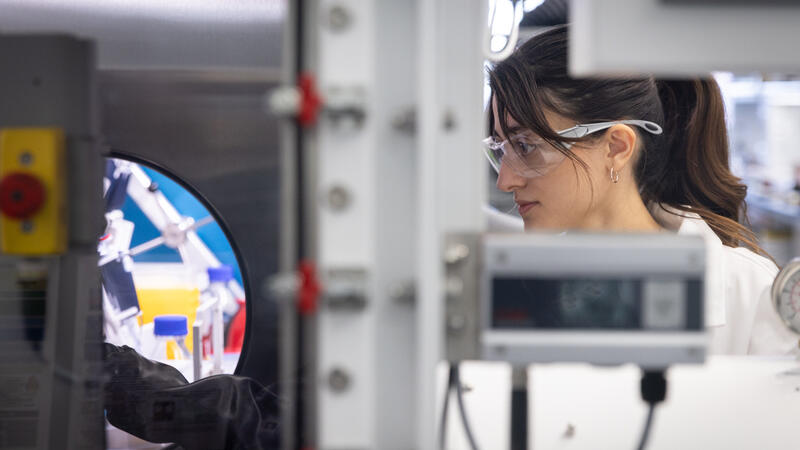News
Autonomous lab accelerates discoveries to harness power of microbes
High yields. A deep root system that prevents soil erosion and allows for minimal irrigation. The ability to pull large amounts of carbon out of the air and sequester it in the soil. Beneficial effects on wildlife, pollination, and water quality. Perennial grasses, such as switchgrass and elephant grass, are wonderful in many ways and especially promising biofuel feedstocks.
Gracielou Klinger likes to describe the chemicals she uses in her research at Michigan State University (MSU) as “smelly.” Klinger, a biochemistry graduate student in the Great Lakes Bioenergy Research Center (GLBRC), studies how smelly chemicals such as sulfur can be used to break apart lignin and turn it into valuable products like biofuels.
The awardees span the four divisions — arts and humanities, physical sciences, social sciences, and biological sciences — on campus.
Researchers at the Great Lakes Bioenergy Research Center (GLBRC) at the University of Wisconsin–Madison have developed a method to create hybrid yeasts that combine traits from up to six different species. The approach allows scientists to harness advantageous traits from many species in a single strain tailored for a specific use, such as producing biofuels.
In a study published in Nature Sustainability, an ecosystem scientist and an agricultural economist outline how to develop a more sustainable land management system through data collection and stakeholder buy-in.
Entomology graduate student Allison Zahorec has received $138,000 for three years to learn more about how soil microarthropod communities found in various bioenergy crop systems influence microbial and plant functions that help soils retain carbon.
As our world faces massive shortages of N95 masks, there is growing concern for the safety of healthcare workers who rely on these specialized masks and other personal protective equipment (PPE) to treat COVID-19 patients.





